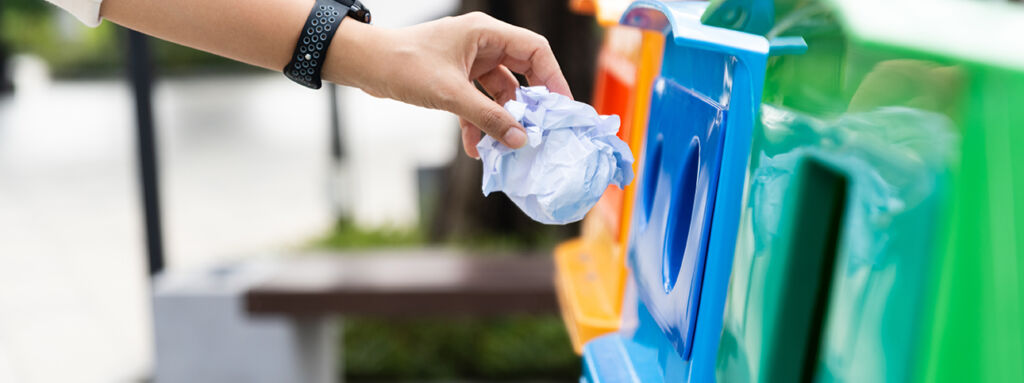March 17, 2020
Trash Versus Recycle: Which Items Go Where?
You just guzzled down a cold beverage. Now what? Do you toss the plastic bottle in the nearest waste container or do you recycle it? And then what? Do you leave the cap on or remove it?

You just guzzled down a cold beverage. Now what? Do you toss the plastic bottle in the nearest waste container or do you recycle it? And then what? Do you leave the cap on or remove it?
So many questions! But, the answers to them truly does matter when it comes to discarding items. According to the Environmental Protection Agency (EPA), putting items in a recycling bin that really can’t be recycled contaminates the recycling stream. “After these unrecyclable items arrive at recycling centers, they can cause costly damage to the equipment,” the EPA says. “Additionally, after arriving at recycling centers, they must be sorted out and then sent to landfills, which raises costs for the facility.”
The bottom line: not every bit of waste can or should be recycled. Here are some guidelines to help make the right decisions when it comes to recycling items versus tossing them in the trash.
The following items are fair game to recycle, but only if they are clean:
- Paper products: Printing paper, magazines, newspapers, unsoiled brown bags, envelopes, milk and juice cartons
- Plastics: Plastic containers labeled #1 or #2. For plastic bottles with caps, the best way to recycle them is to replace the cap and put it in the bin, according to Real Simple. Caps are made from high-density polyethylene or polypropylene, which are in high demand in both domestic and export markets.
- Aluminum and steel cans: Beverage cans, food cans and empty aerosol containers
- Glass: Bottles and jars of any color. For the safety and wellbeing of sanitation workers and others, broken glass should not be placed in a recycling bin.
- Cardboard: Flattened boxes, regular and corrugated
The following items are difficult or impossible to recycle and should be placed in trash bins:
- Plastic bags: Shopping, grocery and garbage bags
- Styrofoam: Packing materials, cups and storage containers made from polystyrene, most commonly known by the brand name Styrofoam
- Food containers: Pizza boxes, takeout boxes, snack bags, candy wrappers, bread bags and plastic film wrap are contaminated and consequently non-recyclable. (Same with used napkins, tissues and paper towels!)
- Miscellaneous: Hazardous, fragile and otherwise non-reusable products such as batteries, motor oil, paint, rubber tires, light bulbs, empty ink cartridges, etc. should be separated and thrown in the trash.
What should you do with all these trash versus recycling rules, regulations and best practices? What do they mean for business owners, property managers and custodial workers? When the establishment is regularly cleaned and kept neat and customers follow proper protocol, the reputation of the business can remain positive. To help eliminate confusion and misplacement of materials, clear signage may be posted to clarify where items should be discarded.
Commercial Zone is fully committed to maintaining sustainable practices for better business – and a healthier planet. With many of our products, everything from the products to the shipping cartons by which they are delivered are made from 25% or higher recycled materials and are 100% recyclable post-use. Our commercial trash containers and recycling containers not only look great, but they also make it easy for businesses to keep their indoor and outdoor environments clean and attractive.
